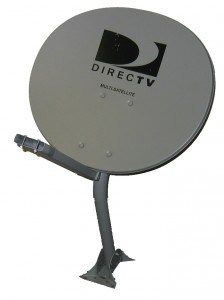
"This will never end well."
Stop the Cap! and our allies Free Press teamed up to expose Frontier’s usage limits for what they are — a broadband ripoff.
KOVR-TV in Sacramento ran an excellent piece on Frontier’s latest embarrassing screw-up: driving their declining landline broadband customers away with unjustified and arbitrary usage caps.
One new piece of the story: Frontier could bring its usage rationing sideshow to a community near you. As Stop the Cap! informed readers from the beginning, the company has quietly been tracking customers’ usage, looking for outliers they can suggest are using too much. Now the company says it is ready to drop the hammer on heavy users.
Stephanie Beasly, Communications Manager — Frontier Communications:
“The company letters were sent to customers that are using an excessive amount of the network. Well beyond any reasonable amount for an average user and significant enough to negatively affect other customers’ user experience.
The letters are meant to communicate to these customers that their usage is in excess and we would like to work with them to adjust their plan or their usage. In most cases our customers were not aware of their usage patterns and are willing to work with us to adjust their plans to fit their lifestyles. We do not have a customer capacity on our network. We are looking to work with these customers to help prevent degradation on our network to ensure the customer experience.
The pricing structure was put in place to help us maintain the network experience for all customers. If you choose to use a significant amount of bandwidth we believe you should pay for the service accordingly.
The letters were sent to four markets across the company. We routinely review network usage patterns and these users jumped out as consuming an inordinate amount of bandwidth, enough to negatively affect other customers’ user experience.
All of Frontier markets are reviewed for usage patterns as the markets receiving the letters were reviewed. These specific markets were not targeted.
The customers using an excessive amount of data negatively impact the network for other users. Preventing us from providing adequate bandwidth to all of our users during peak and non-peak times.”
There is less and less to like about Frontier Communications, despite the fact they plan to deliver broadband service to rural Americans unlikely to see it from anyone else. We’re glad someone is willing to provide the service, but 1-3Mbps broadband with arbitrary usage limits and potentially confiscatory pricing ($250 a month for residential customers), is a trade the devil might make.
 Stop the Cap! will continue to organize opposition to Frontier’s foolish pricing schemes wherever they appear. We will help customers find an alternate provider wherever possible, preferably one that remembers a customer should be treated like gold, not mined for it.
Stop the Cap! will continue to organize opposition to Frontier’s foolish pricing schemes wherever they appear. We will help customers find an alternate provider wherever possible, preferably one that remembers a customer should be treated like gold, not mined for it.
In suburban Sacramento, we highly recommend SureWest — a fiber-to-the-home service provider that not only has no Internet Overcharging scheme, but provides service at speeds that frankly embarrass Frontier’s last-century DSL. They will even cover up to $200 of any early cancellation fee Frontier charges (and if Frontier tries, we want to know about it).
Our reader, Mr. Brown, was pleasantly surprised to find that SureWest’s speeds just blow Frontier out of the water. He’s saying goodbye to his 6/0.5Mbps DSL line from Frontier and hello to 25/25Mbps service from SureWest that will also save him $10 a month! He is also happy to see the back of Frontier’s Overcharging Nanny telling him to get off the Internet.
“[These caps] are a slippery slope and Internet providers need to know that action such as these will result in lost profits,” Mr. Brown wrote on KOVR’s website. Departing customers typically drop -all- of their Frontier services, costing the company landline revenue as well.
Indeed, Frontier continues to lose more landline customers than its adds, and bungling policies like overcharging for Internet service will only accelerate the departure of angry customers.
Unfortunately, Frontier’s failures extend way beyond their broadband service.

The golden parachute for some, just not for you.
Frontier’s way of doing business has:
- given customers one more reason to cancel their landline service;
- ruined a fiber-to-the-home service that a child should be able to market successfully;
- irritated subscribers with “price protection agreements” that are little more than tricks and traps — delivering all of the protection to Frontier’s bottom line and making you pay the price;
- destroyed what few reasons remain for customers to waste their time with DSL broadband wherever cable or municipal providers exist;
- delivered big dividends and results only to shareholders, siphoning away important financial resources needed to upgrade their facilities.
In Everett, Washington Frontier cannot even manage the steady flow of customers canceling FiOS video service after news of a shocking $30 a month rate increase. After telling customers they should “upgrade” their Frontier service to DirecTV satellite, those customers that tried encountered news that DirecTV never heard of the promotion Frontier was offering:
Two hours on the phone, six customer service people and a disconnected call — it wasn’t the introduction to DirecTV that one local man had hoped.
A FiOS television customer, Rick Wright sought to take advantage of an offer made last week by Frontier Communications and its partner, DirecTV.
[…]When Wright called initially, the Frontier customer service person was familiar with Frontier’s offer and transferred Wright to DirecTV to get an installation date before cancelling his FiOS TV service. At DirecTV, Wright spoke to six people over a two-hour span before being disconnected. Wright called back to DirecTV the following day only to be told that he was misinformed about the offer. Frontier spokeswoman Stephanie Beasly said Thursday that she was taking care of Wright’s problem.
On Friday, more than a week after Frontier first announced its new offer, Wright said his television service still remained up in the air. Several other FiOS television customers in Snohomish County reported difficulty in getting the free DirecTV offer.
Late last week, Frontier acknowledged some miscommunication between the company and its partner, DirecTV. On Thursday, Beasly said she believed those issues had been resolved. She did not return a request for further information Friday.
DirecTV spokeswoman Jade Ekstedt suggested in an e-mail that FiOS customers should contact Frontier directly for assistance.
“The offer … is a valid Frontier Communications promotion that includes DirecTV service, and DirecTV always works with its partners on valid offers that they introduce into market,” Ekstedt wrote, when asked whether DirecTV is honoring Frontier’s offer.
Complaints are arriving at a steady pace, reports the Washington State Attorney General’s office.
This is a story that never ends well. But don’t worry — the executives responsible for the notorious bungling have their spots on the compensation lifeboats already reserved. Too bad customers will likely go down with the ship.
[flv width=”640″ height=”380″]http://www.phillipdampier.com/video/KOVR Sacramento Call Kurtis Bill May Triple For Excessive Internet Usage 1-13-11.mp4[/flv]
KOVR-TV in Sacramento worked with Stop the Cap! and Free Press to develop this story about Frontier’s unjustified Internet Overcharging schemes. (4 minutes)
 Hours before a two-week extension on contract talks was set to expire, Time Warner Cable and Sinclair Broadcasting announced they had a deal to avert the loss of dozens of Sinclair-owned stations on Time Warner Cable.
Hours before a two-week extension on contract talks was set to expire, Time Warner Cable and Sinclair Broadcasting announced they had a deal to avert the loss of dozens of Sinclair-owned stations on Time Warner Cable.![]() Time Warner Cable also negotiates programming deals on behalf of Bright House Networks, and a separate, similar agreement was anticipated to be reached sometime this week.
Time Warner Cable also negotiates programming deals on behalf of Bright House Networks, and a separate, similar agreement was anticipated to be reached sometime this week.

 Subscribe
Subscribe








